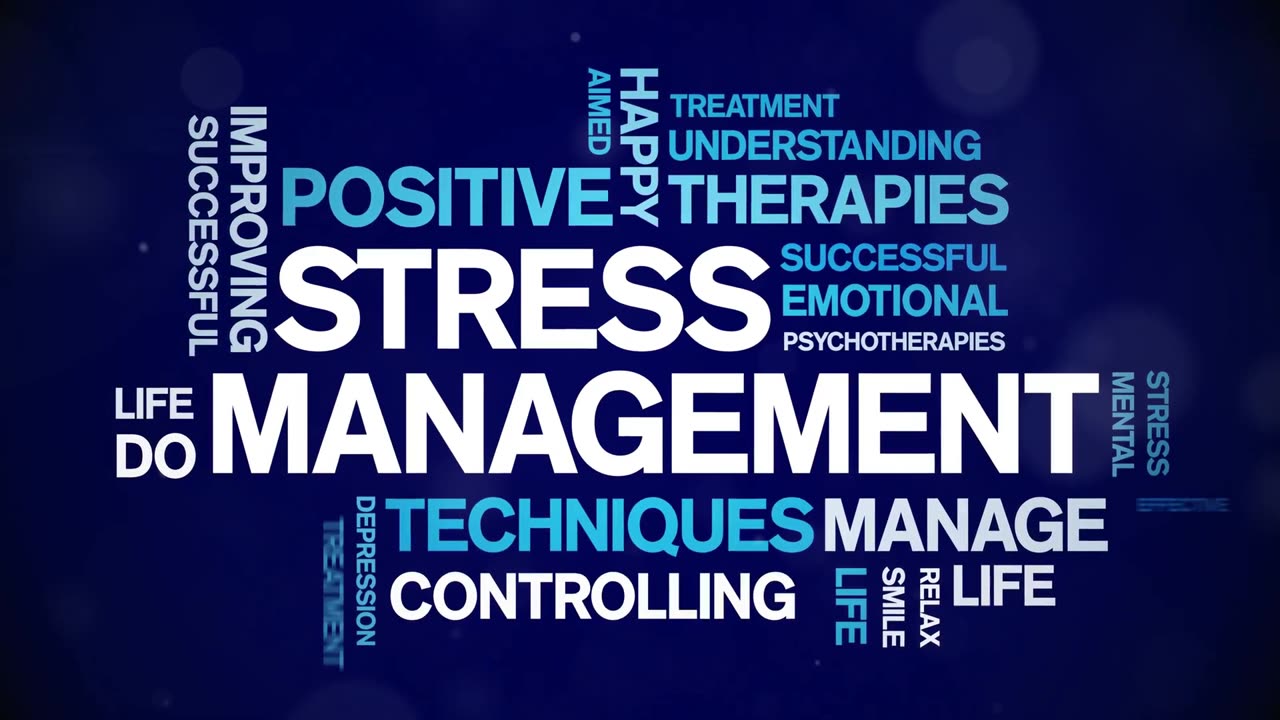Premium Only Content

Lets shed the stress, You may be taking on to much, its time to take a breath.
Facebook 1 - https://www.facebook.com/realmikemartins
Favebook 2 - https://www.facebook.com/Realmikeinthenight/
Instagram - https://www.instagram.com/realmikemartins/
TIK TOK - https://www.tiktok.com/@mikemartins52
Threads - https://www.threads.net/@realmikemartins
SWAG - https://shop-mike-martins-2.creator-spring.com/
Buy me a coffee - https://donorbox.org/buy-me-a-coffee-53
Go here for Mike in the NIght!
https://rumble.com/c/realmikemartins
Mike in the Night Archive
https://rumble.com/playlists/dCVLz3LILuw
Buy Mike A Coffee - https://donorbox.org/buy-me-a-coffee-53
1. Mindfulness and Meditation
Description: Mindfulness and meditation involve focusing your attention on the present moment and calmly acknowledging your feelings, thoughts, and bodily sensations.
How It Works:
Mindfulness: Practicing mindfulness can be as simple as focusing on your breath or bodily sensations, or it can involve structured activities like mindful eating or walking.
Meditation: This can include guided meditations, where you follow a recorded voice or instructor, or unguided practices where you sit quietly and focus on your breath.
Benefits: Regular practice can reduce anxiety, improve mood, and increase overall well-being. It helps regulate emotions and reduce the body's stress response.
2. Regular Physical Exercise
Description: Engaging in regular physical activities helps reduce stress hormones and increase endorphins, the body's natural mood lifters.
How It Works:
Cardio Exercises: Activities like running, cycling, swimming, or brisk walking elevate your heart rate and release endorphins.
Strength Training: Lifting weights or doing bodyweight exercises can also reduce stress and improve physical health.
Yoga: It combines physical movement, breathing exercises, and meditation. It can be particularly effective for reducing stress and anxiety.
Benefits: Exercise improves mood, increases energy levels, promotes better sleep, and strengthens the body's resilience to stress.
3. Healthy Diet and Nutrition
Description: Eating a balanced diet helps regulate your body's stress levels by providing the necessary nutrients for proper body and brain function.
How It Works:
Balanced Meals: Include a mix of fruits, vegetables, whole grains, lean proteins, and healthy fats.
Hydration: Staying well-hydrated is crucial to maintaining energy levels and overall health.
Limiting Caffeine and Sugar: High intake of caffeine and sugar can cause sudden energy spikes and crashes, contributing to stress and anxiety.
Benefits: A healthy diet supports brain function, stabilizes blood sugar levels, and provides the energy needed to effectively manage stress.
4. Adequate Sleep
Description: Having sufficient high-quality sleep is essential for stress management and overall health.
How It Works:
Sleep Hygiene: Establish a regular sleep schedule, create a quiet sleep environment, and avoid stimulants like caffeine before bedtime.
Relaxation Techniques: Practices like deep breathing, progressive muscle relaxation, or a warm bath before bedtime can promote better sleep.
Avoiding Electronics: Reduce screen exposure before sleep to avoid disrupting the natural sleep cycle.
Benefits: Quality sleep improves mood, cognitive function, and the body's ability to cope with stress. It aids in memory consolidation and overall mental health.
5. Social Support and Connection
Description: Maintaining strong social connections and having a support system can significantly reduce stress.
How It Works:
Talking to Friends and Family: Sharing your concerns and feelings with trusted individuals can provide emotional support and practical solutions.
Support Groups: Participating in a group with similar experiences can offer a sense of community and understanding.
Professional Help: Consulting a therapist or counselor can provide strategies and tools for managing stress.
Benefits: Social support reduces feelings of isolation, increases a sense of belonging, and provides a network of resources and advice. Positive social interactions can lower stress hormones and promote a sense of well-being.
Stress Relief, Mindfulness, Meditation, Physical Exercise, Healthy Diet,
Nutrition, Adequate Sleep, Sleep Hygiene, Social Support, Emotional Wellbeing,
Mental Health, Wellness, Stress Management, Relaxation Techniques, Self Care,
Fitness, Healthy Lifestyle, Stress Reduction, Yoga, Cardio Workouts,
Strength Training, Hydration, Balanced Diet, Healthy Eating,
Cognitive Function, Therapy, Counseling, Community Support, Endorphins,
Sleep Quality, Positive Thinking, Breathing Exercises, Stress Control
-
 0:32
0:32
Mike Martins Channel
1 month ago $0.07 earnedbeauty of Manila
2222 -
 1:03:42
1:03:42
Crypto Power Hour
2 hours agoWhat Coins Are The Backbone of The New Digital Revolution?
555 -
 LIVE
LIVE
LFA TV
3 hours agoLFA TV ALL DAY STREAM - WEDNESDAY 8/27/25
5,554 watching -
 1:22:55
1:22:55
Game On!
19 hours ago $2.62 earnedBREAKING NFL NEWS: Taylor Swift and Travis Kelce Are Engaged!
29.9K12 -
 41:04
41:04
Coin Stories with Natalie Brunell
1 day agoCooking, Culture & Crypto: Norma Chu’s Food Empire Turns Bitcoin Treasury
24.8K -
 LIVE
LIVE
JuicyJohns
1 hour ago $0.15 earned🟢#1 REBIRTH PLAYER 10.2+ KD🟢
37 watching -
 1:21:19
1:21:19
JULIE GREEN MINISTRIES
3 hours agoDIRTY POLITICIANS WILL BE ARRESTED AND REMOVED FROM POWER
63.3K188 -
 LIVE
LIVE
GritsGG
2 hours agoWin Streaking! Most Wins 3485+ 🧠
27 watching -
 1:02:09
1:02:09
The Confessionals
22 hours agoThe Supernatural Proof You Can’t Ignore (When Angels and Demons Showed Up) | Lee Strobel
41.3K27 -
 15:24
15:24
Degenerate Jay
22 hours ago $1.10 earned5 Best Moments In Batman: Arkham Asylum
23.4K1